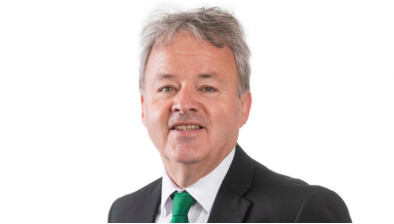Scotland’s councils ‘face severe challenges’ to balance the books

Scotland’s councils faced a collective gap of up to £585 million between the money needed to deliver services and the money available when setting their budgets this year, the Accounts Commission has warned.
A report by the watchdog on the budgets set by councils for 2024/25 has estimated that this gap will increase to £780m by 2026/27, meaning that ever tougher decisions must be made to ensure councils are financially sustainable.
Councils are addressing this most commonly by making ongoing savings, using reserves and raising money through charging citizens for some services, the Commission said.
The report says that a near 6% increase in Scottish Government revenue funding to councils – totalling £13.25 billion - masks significant underlying financial challenges and strain. Almost all the increases in funding have been ring-fenced for policies and to cover the costs of pay increases in 2023/24.
Whilst councils received £147m of government funding to mitigate the impacts of this year’s council tax freeze, there are longer-term financial consequences as future rises will provide less income for councils. Also, a third of councils say the government funding does not fully fund the freeze.
The full impact of proposed savings by councils on service delivery and communities is unclear. There has been significant public opposition in some council areas to cuts to services, with new and increased charges also affecting people.
The Accounts Commission said it will continue to monitor this area closely, as councils must meet savings in full this year. Failing to do so will intensify and exacerbate the impacts on services in future years, as further savings will be needed.
It called on councils to look to the future as they make increasingly difficult decisions to deliver savings, at scale, to address projected budget gaps. Planning and delivering on transformational change are vital if councils are to be financially sustainable.
Derek Yule, member of the Accounts Commission, said: “It’s getting harder for councils to do more with less. They have to find and then deliver significant levels of savings to address budget gaps. Fully engaging with local people and being clear about the different and difficult budget choices is vital, whilst understanding the impacts on the most vulnerable.
“Councils need to improve the way in which they present financial information, and do this in a clear, consistent and accessible way. The Accounts Commission calls on councils to increase the accessibility and transparency of publicly available budget information. This will allow for improved comparison between councils, particularly around key information including actions to tackle existing and future budget gaps, as well as savings plans.”
COSLA said a real and meaningful solution to the long-term issue of the underfunding of Scottish Local Government is required in order to protect essential front-line services.
Resources spokesperson Councillor Katie Hagmann said: “The Accounts Commission’s report on the budgets set by councils for 2024/25, published today, reinforces what we have been saying about Council finances and the severe challenges Scotland’s Councils face in trying to balance the books and deliver essential front-line services.
“It is vitally important that these concerns, which have been consistently raised by COSLA Leaders and are now backed up by evidence presented by the Accounts Commission, are acted upon for the sake of Scotland’s public services and our communities who rely upon them.
“Now is the time to take real action. Today’s Accounts Commission report is an accurate portrayal of where we are now – over half a billion pounds short for this year and a cumulative budget gap of £780m by 2026/27. The reality right now for Councils has never been more challenging. The effect of years of real-terms cuts to core budgets have been compounded by additional policy commitments and less flexibility in how we allocate increasingly directed budgets. This makes the ability to take local decisions on most of our budget, almost impossible.”
Councillor Hagmann concluded: “We must seek a sustainable solution to these long-term issues in order to protect the essential front-line service of our communities before it is too late.”







